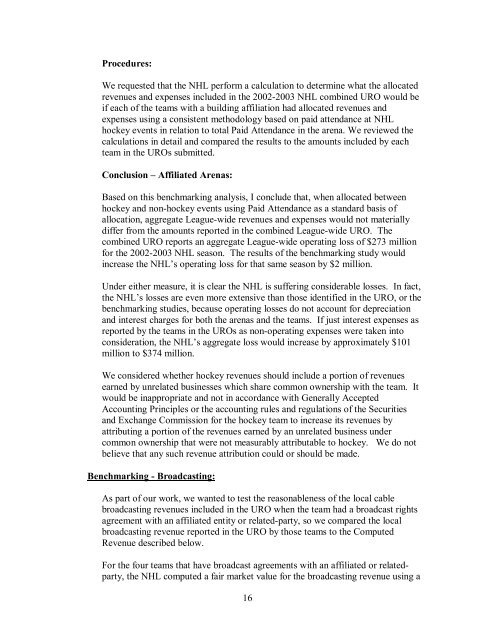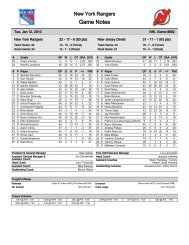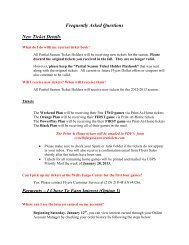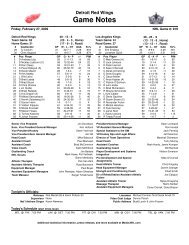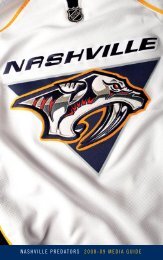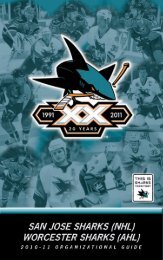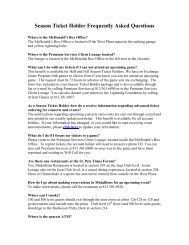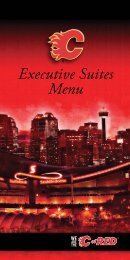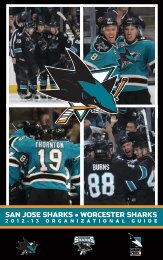Levitt Report - NHL.com
Levitt Report - NHL.com
Levitt Report - NHL.com
You also want an ePaper? Increase the reach of your titles
YUMPU automatically turns print PDFs into web optimized ePapers that Google loves.
Procedures:We requested that the <strong>NHL</strong> perform a calculation to determine what the allocatedrevenues and expenses included in the 2002-2003 <strong>NHL</strong> <strong>com</strong>bined URO would beif each of the teams with a building affiliation had allocated revenues andexpenses using a consistent methodology based on paid attendance at <strong>NHL</strong>hockey events in relation to total Paid Attendance in the arena. We reviewed thecalculations in detail and <strong>com</strong>pared the results to the amounts included by eachteam in the UROs submitted.Conclusion – Affiliated Arenas:Based on this benchmarking analysis, I conclude that, when allocated betweenhockey and non-hockey events using Paid Attendance as a standard basis ofallocation, aggregate League-wide revenues and expenses would not materiallydiffer from the amounts reported in the <strong>com</strong>bined League-wide URO. The<strong>com</strong>bined URO reports an aggregate League-wide operating loss of $273 millionfor the 2002-2003 <strong>NHL</strong> season. The results of the benchmarking study wouldincrease the <strong>NHL</strong>’s operating loss for that same season by $2 million.Under either measure, it is clear the <strong>NHL</strong> is suffering considerable losses. In fact,the <strong>NHL</strong>’s losses are even more extensive than those identified in the URO, or thebenchmarking studies, because operating losses do not account for depreciationand interest charges for both the arenas and the teams. If just interest expenses asreported by the teams in the UROs as non-operating expenses were taken intoconsideration, the <strong>NHL</strong>’s aggregate loss would increase by approximately $101million to $374 million.We considered whether hockey revenues should include a portion of revenuesearned by unrelated businesses which share <strong>com</strong>mon ownership with the team. Itwould be inappropriate and not in accordance with Generally AcceptedAccounting Principles or the accounting rules and regulations of the Securitiesand Exchange Commission for the hockey team to increase its revenues byattributing a portion of the revenues earned by an unrelated business under<strong>com</strong>mon ownership that were not measurably attributable to hockey. We do notbelieve that any such revenue attribution could or should be made.Benchmarking - Broadcasting:As part of our work, we wanted to test the reasonableness of the local cablebroadcasting revenues included in the URO when the team had a broadcast rightsagreement with an affiliated entity or related-party, so we <strong>com</strong>pared the localbroadcasting revenue reported in the URO by those teams to the ComputedRevenue described below.For the four teams that have broadcast agreements with an affiliated or relatedparty,the <strong>NHL</strong> <strong>com</strong>puted a fair market value for the broadcasting revenue using a16


